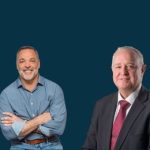 Congratulations to Clausana, which yesterday (Sunday 24 February) won the London leg of the Global Legal Hackathon 2019 and will be entered into the virtual semi-finals in March.
Congratulations to Clausana, which yesterday (Sunday 24 February) won the London leg of the Global Legal Hackathon 2019 and will be entered into the virtual semi-finals in March.
The Freshfields Bruckhaus Deringer team, which was one of eight to compete in the intense two-day challenge, created a terms and conditions app that enables consumers to identify where the T&Cs deviate from their expectations and build a profile of the digital services they consume. With high enough adoption, the hope among the team, led by innovation consultant Shawn Curran, is that the app may put providers under pressure to change their terms where they deviate significantly from expectation. The team included Oli Mitchell from the University of Law, who joined after teams were whittled down on Friday evening.
One thing that jumped out about the winners is how utterly focussed they were very early on – by Saturday morning they had decided on the concept, their place in the market (what the competition looks like – not much) and then it was over to the engineers while the rest of the team worked on the presentation.
The winner was selected by a team of judges that included Christina Blacklaws, president of the Law Society; Ben Gardner, chief scientific officer at Wavelength Law; Jeanette Nicholas, depute head of Westminster Law School; Dr Richard Sykes, chair of the cloud industry forum; and Jelena Madir, chief counsel of the European Bank for Reconstruction and Development.
I was a GROWL mentor and spoke with a few of the teams – albeit, ironically, not the largely female team, which was the original purpose of the mentoring programme.
LawSum looked to use machine learning to create a summary of a judgment that can help lawyers quickly identify its relevance – you can find academic papers exploring this around the turn of the century, but NLP technology has clearly moved on since then.
The other team I spoke to was Team Synergy, which looked to automate the building of a pitch document. The group was headed by physics graduate Sam Sawin and aided by Tim Travers – a tech lawyer who older readers may remember co-founded the Neil Cameron Consulting Group. My advice was to distinguish the offering from what is already available in the market, in particular Enable Business Solutions PitchPerfect. We agreed that competition – the availability of more than one solution – is by no means a bad thing but that you have to do what startups often fail to do and be aware of the competition and how your offering is as or more compelling.
kiteMind, the team I meant to see but didn’t, were working on a mindfulness app, which taps into the current trend towards giving mental health more than lip service.
From early feedback the GROWL programme could do with some refining and was far from seamless but anything that gets more women involved in legal tech is a good thing and we should help to refine it and work out how to improve it next year rather than bash it.
The event was hosted by the University of Westminster and organised by Wavelength Law, Cambridge Strategy Group and Agile Elephant. You’ll recall that Wavelength won the online courts hackathon in 2017. We’ll bring you updates of the global winners and who will be competing against Clausana in the semi-finals.
[email protected]







